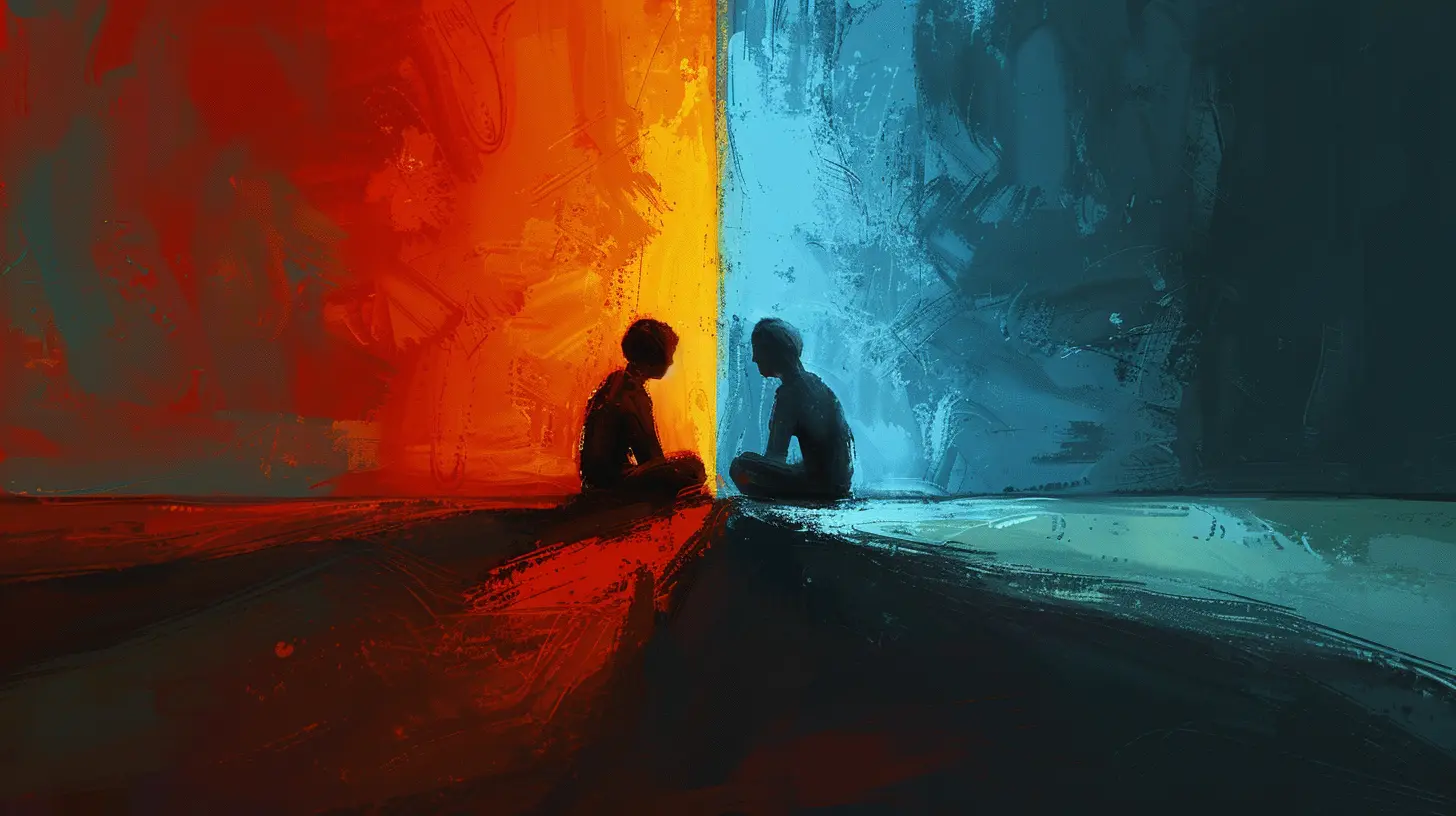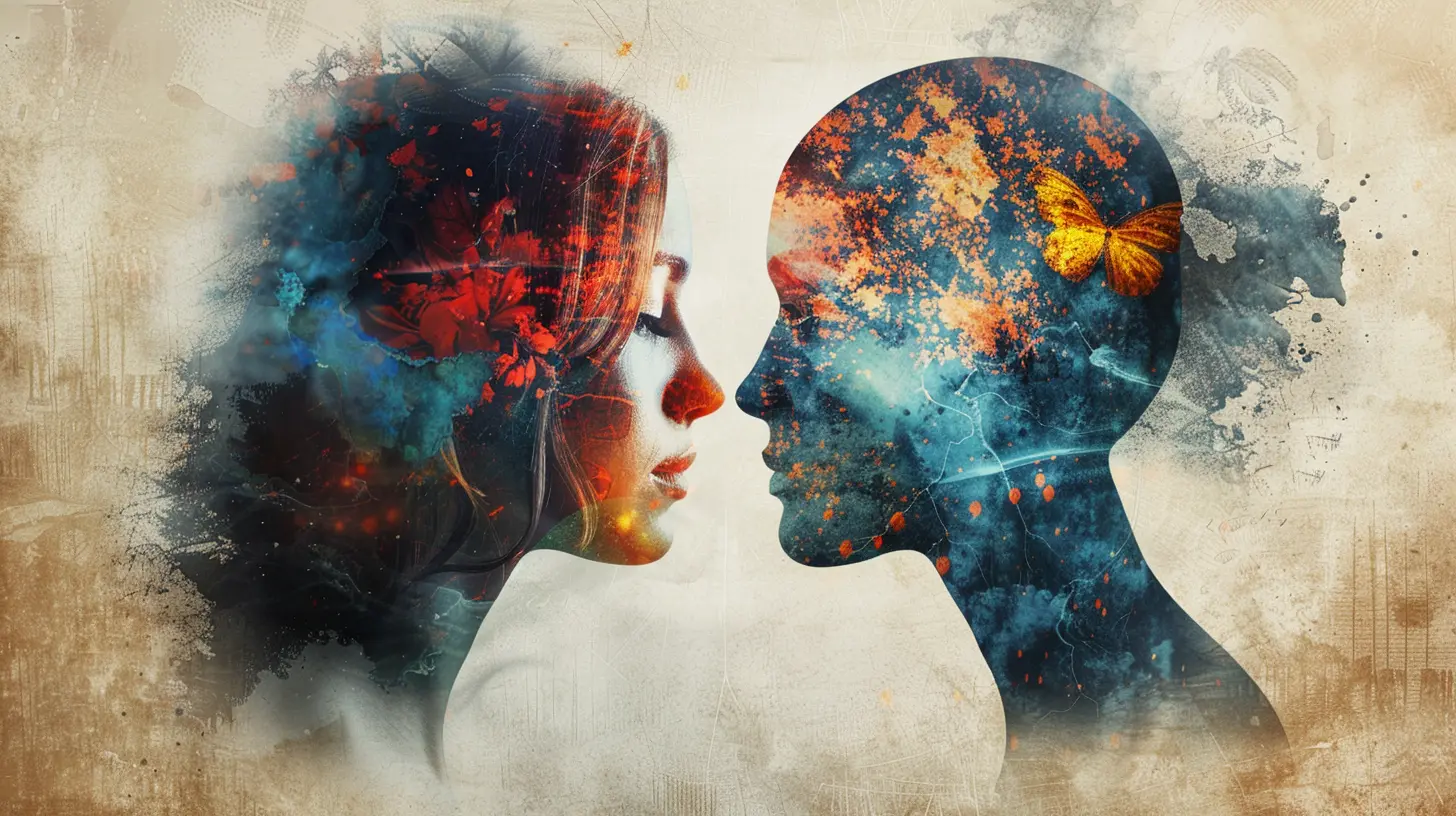Introversion vs. Social Anxiety: Understanding the Differences
3 November 2025
Have you ever wondered why some people seem to thrive in social situations while others appear to withdraw? Or maybe you've questioned if you're just introverted or if something deeper, like social anxiety, might be at play. While introversion and social anxiety might look similar on the surface—after all, both can involve a preference for solitude—there are some key differences between the two.
In this article, we'll break down the distinctions between introversion and social anxiety, explore how they manifest, and help you understand where you might fit on the spectrum. So, whether you're an introvert, someone with social anxiety, or just curious about both, keep reading!

What Is Introversion?
The Basics of Introversion
Introversion is a personality trait that revolves around how you gain and expend energy. Introverts typically feel more energized by spending time alone or in small, quiet settings. It's not that introverts dislike people—far from it! They simply prefer deep, meaningful conversations over small talk and often find social interactions, especially in large groups, draining.Introverts are like a smartphone that needs to be recharged after a long day out. After attending a social event, they might feel the need to "plug in" and recharge by spending some quiet time alone. It's about energy management rather than fear or anxiety.
Characteristics of Introverts
- Preference for solitude: Introverts enjoy alone time and often seek it out to recharge.- Small groups over large crowds: They prefer intimate settings rather than large social gatherings.
- Deep thinkers: Introverts tend to reflect deeply and enjoy introspective activities like reading, writing, or meditating.
- Selective socialization: They may have a smaller circle of close friends, valuing quality over quantity in relationships.
Common Myths About Introverts
There are a lot of misconceptions about introverts. For example, some people think introverts are shy or antisocial. This couldn’t be further from the truth. Being introverted doesn’t mean you’re shy or that you fear social interactions. It just means you prefer to engage in them more selectively, and you need time to recharge afterward.
What Is Social Anxiety?
The Basics of Social Anxiety
Social anxiety, on the other hand, is a mental health condition that can make social interactions feel terrifying. It’s not about energy management like introversion; rather, it’s about fear—fear of judgment, embarrassment, or rejection. People with social anxiety often avoid social situations because they’re afraid of being negatively evaluated by others.Imagine feeling like every social interaction is a test you might fail. You worry about saying the wrong thing, looking awkward, or being judged. This isn’t just an occasional worry—it’s persistent and overwhelming, affecting day-to-day life.
Characteristics of Social Anxiety
- Fear of judgment: People with social anxiety are often preoccupied with how others perceive them.- Avoidance of social situations: They might go out of their way to avoid social gatherings, even if they want to be there.
- Physical symptoms: Social anxiety can lead to sweating, shaking, a racing heart, and other physical symptoms when faced with social situations.
- Excessive self-consciousness: People with social anxiety are hyper-aware of their actions and worry that others are scrutinizing them.
Common Myths About Social Anxiety
One common misconception is that people with social anxiety are just shy or introverted. While shyness can be a part of social anxiety, not all shy people have social anxiety, and not all people with social anxiety are introverted. Social anxiety is a more extreme, debilitating form of discomfort in social situations, and it's not something that can be easily overcome by "just putting yourself out there."
Key Differences Between Introversion and Social Anxiety
Now that we’ve laid out the basics of introversion and social anxiety, let’s dig into the main differences. While these two concepts are often confused, they’re actually quite distinct.1. Energy vs. Fear
Introversion is about energy. Introverts feel drained after socializing and need time alone to recharge. In contrast, social anxiety is about fear—fear of being judged, embarrassed, or rejected in social settings. Introverts may enjoy socializing but in moderation, while someone with social anxiety might want to socialize but avoid it due to overwhelming fear.2. Comfort Levels in Social Situations
Introverts are generally comfortable in social situations but prefer smaller, more intimate gatherings. They might not enjoy being the center of attention or engaging in small talk, but they don’t experience panic at the thought of socializing. On the other hand, people with social anxiety may find even small social interactions—like ordering food at a restaurant or making a phone call—extremely distressing.3. Physical Symptoms
While introverts don’t generally experience physical symptoms from social interactions, people with social anxiety often do. This can include sweating, trembling, a racing heart, or even nausea. These physical symptoms are due to the intense anxiety they feel in social situations.4. Desire for Social Interaction
Introverts might enjoy social interaction, but they prefer it in small doses. They value meaningful connections and may have a close-knit group of friends. People with social anxiety, however, often want to socialize but feel paralyzed by fear. They might avoid socializing not because they don’t want to, but because the anxiety is too overwhelming.5. Impact on Daily Life
Introversion doesn’t typically interfere with daily life. An introvert might choose not to go to a party, but this decision doesn't usually come with feelings of fear or distress. Social anxiety, on the other hand, can be debilitating. It can interfere with work, school, relationships, and daily activities because the fear of social interaction is so intense.
Can You Be Both?
Yes, it’s absolutely possible to be both introverted and have social anxiety, but they are not the same thing. An introvert with social anxiety may prefer solitude because they're both drained by social interaction and anxious about it. In this case, the introversion and social anxiety can feed into each other, creating a cycle where the person avoids social situations and becomes even more anxious as a result.However, it’s also possible to be introverted without experiencing social anxiety, or to have social anxiety without being introverted. Someone with social anxiety might deeply desire to connect with others but find it difficult due to fear, while an introvert might simply prefer a quiet night in without any fear involved.
How to Cope With Social Anxiety
If you suspect that what you're dealing with is more than just introversion, and you think you might have social anxiety, don't worry—there are ways to manage it.1. Cognitive Behavioral Therapy (CBT)
CBT is one of the most effective treatments for social anxiety. It helps you identify and challenge the negative thought patterns that contribute to your anxiety. Over time, CBT can teach you how to approach social situations without fear.2. Gradual Exposure
One of the most common treatments for social anxiety is exposure therapy, which involves gradually facing social situations that make you anxious. The idea is that the more you expose yourself to these situations, the less fear you'll feel over time.3. Mindfulness and Relaxation Techniques
Mindfulness can help you stay grounded in the present moment rather than worrying about what others think. Techniques like deep breathing or meditation can also help reduce the physical symptoms of anxiety.4. Medication
In some cases, medication may be prescribed to help manage the symptoms of social anxiety. This is usually considered when therapy and other techniques aren’t enough on their own.
How to Embrace Your Introversion
If you're an introvert and you’ve always felt pressured to be more outgoing, remember that being introverted is not a flaw. Society often glorifies extroversion, but introverts bring their own strengths to the table—like being great listeners, deep thinkers, and loyal friends.1. Set Boundaries
Don't feel guilty about needing time to recharge. It's okay to say no to a social event if you're feeling drained. Setting boundaries will help you maintain your energy and well-being.2. Find Your Tribe
Introverts often thrive in small, close-knit groups. Seek out people who understand and appreciate your need for alone time.3. Practice Self-Care
Introverts tend to be more in tune with their inner worlds, which means self-care activities like journaling, reading, or taking quiet walks can be particularly beneficial.Final Thoughts: Understanding Your True Nature
Whether you're introverted, socially anxious, or a mix of both, understanding yourself better is the first step toward self-acceptance. Introversion is simply a personality trait, while social anxiety is a mental health condition that can be treated. By recognizing the differences, you'll be better equipped to navigate social situations in a way that aligns with who you truly are.So, next time you feel the urge to retreat after a long day of socializing, take a moment to consider—are you recharging your energy like an introvert, or are you avoiding social interaction due to fear? Understanding the difference can make all the difference.
all images in this post were generated using AI tools
Category:
Social AnxietyAuthor:

Jenna Richardson
Discussion
rate this article
1 comments
Jinx McWhorter
Introverts recharge alone, while social anxiety feels like an awkward dance in a room full of mirrors!
November 14, 2025 at 4:43 AM

Jenna Richardson
Thank you for your insightful comment! You capture the essence of the distinction beautifully—introverts seek solitude to recharge, while social anxiety can create a challenging and self-conscious experience in social settings.


